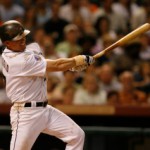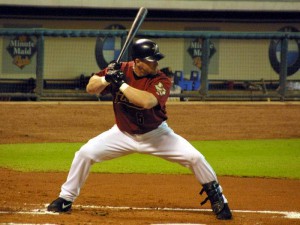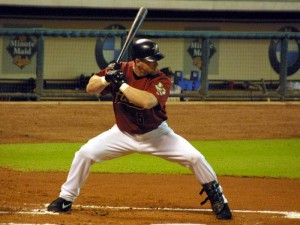Obligatory HoF Reaction post.
I wasn’t going to write one. But email/text conversations later I thought it may just be easier to write a thousand words on the topic.
As the front page of the BBWAA site says, “No players elected for the first time since 1996.” Also for only the 8th time in the history of balloting, no player was elected this cycle by the electorate.
We all knew this day was coming. You can google articles from nearly 5 years ago when the whole slew of these first time players were first known to all be eligible on this ballot and know this day was coming. And now here we are.
My interpretation of the results for the major players kind of goes like the following:
- Craig Biggio was “penalized” by some voters for not being a “First Ballot Hall of Famer” calibre player. Therefore lots of voters who have annointed themselves the keepers of this title skipped voting for him this year. Much like what happened to Roberto Alomar (who went from 73% to 90% from 1st ballot to 2nd) we probably see Biggio get > 90% next year. He’s clearly a hall of famer, but clearly not a first balloter in some eyes.
- Jack Morris is screwed. He only rose from 66% to 67%, indicating to me that enough people have bought into the anti-Morris narrative that has been so fully expoused by sabre-tinged writers to outlast the old-school guard of baseball writers who covered Morris and remember him as I do.
- Piazza and Bagwell both are side effects of the PED argument, but clearly get more credit for possibly being clean than the next two names. But enough people are believing that “back acne” proves PED usage for Piazza, and “muscles” proves PED usage for Bagwell, so both will likely struggle to get to 75% for a few years.
- Clemens and Bonds: both getting almost identical vote totals in the 36-37% range despite both being amongst the best who ever played indicates a clear statement being made by the older voters, who clearly are penalizing these guys for their alleged/accused/leaked grand testimony involving PEDs. I’ll bet though that both players will get significantly more votes in subsequent years and probably eventually make it.
- Sosa and McGwire: probably both never get in, since both are in the 12-16% range. Writers clearly believe both guys were 100% the product of andro and steroids, and thus artificially gained their accomplishments.
- Bernie Williams and Kenny Lofton both amazingly will fall off the ballot. I don’t think either are HoFamers but I also thought they deserved to hang around on the ballot for a while (kind of like a Dale Murphy or a Don Mattingly) to discuss.
- Tim Raines and Lee Smith are probably never getting in; their vote totals don’t seem to be changing much, and a slew of more deserving names are coming in the next 5 years.
- Edgar Martinez, Trammell, McGriff, Walker, Mattingly: they’re all marginal candidates for different reasons, and they all seem likely to die on the ballot in the 30-40% range. I like Martinez for the Hall; in a sentence if you elect the best relief pitchers, how can you not elect the best designated hitters?
- Palmeiro sealed his fate the moment he tested positive. It doesn’t matter if he broached magical barriers of 500 (homers) and 3000 (career hits). He’ll never get in.
- Lastly, the interesting case of Curt Schilling. 38.8% on the first ballot. What does this mean? He’s definitely never been accused of PEDs, had a great peak, was absolutely one of the best pitchers in the game for at least a short amount of time, has 3000 Ks but not 300 wins (or close to it), had an iconic moment in the bloody sock game, and was on two different WS winning teams. A 127 career ERA+ puts him career 48th, even or ahead of plenty of hall of famers. Why so few votes? What statement is being made here? I’m not sure entirely. Maybe this is a combination of the “not a first ballot hall of famer” denials AND some sense of outrage against the outspoken Schilling from older media members who covered him and still vote primarily with their egos.
Back to the question of the article; is the HoF in trouble? Well, yes and no.
No because I think Biggio will be elected next year, along with two more big names who have never had a schred of PED accusations (Maddux and Glavine). And you can see guys in each of the subsequent years easily being elected (Randy Johnson and Pedro Martinez in 2015, Ken Griffey Jr in 2016, Pudge and Manny in 2017 unless there’s still PED outrage at that point. And that ensures there’s ceremonies with who should be absolute no-brainer electees each year for the next few years.
But, Yes because Cooperstown and the Hall itself are not always profit making endeavors, and having an election year without any recently retired players is going to mean a massive drop in income for the town and the hall. Reportedly the museum has lost money in 8 of the last 10 years. That coupled with the continued recession, and we could see some serious financial hardship in upstate New York in 2013. Will it be enough that the BBWAA agrees to one of the litany of election system changes being proposed on the internet? Maybe, maybe not. But if this continues into 2013, yeah we may see something change. Perhaps a panel of judges versus the BBWAA electorate (similar to what the NFL does) makes sense in the long run. The point is that the HoF NEEDS to have a compelling election class in order to stay profitable, and may change its entry mechanisms to guarantee attendance (and thus revenues) each year.
One thing I do agree with; I think writers who purposely send in a blank ballot should be removed from the voting system. You just can not look at this list of players and tell me there’s not at least ONE deserving candidate. A blank ballot does nothing but hurt the chances of legitimate players to be honored and should be interpreted as a writer who does not take the process seriously.
Murkier are my thoughts on entrance requirements to the BBWAA in general. Should we allow in all these internet baseball writers? I think that a lot of the moral outrage and indignance expressed by frequent baseball bloggers over the BBWAA and the “old school” writers is simply mis-placed jealousy that they (the internet blogger) are not eligible to vote. There is a section of the BBWAA constitution that talks about internet writer acceptance and the requirements don’t seem that unfair. The intent of the organization is to find people who “cover the game” but also people who actually “attend the games,” interview players and coaches, and are generally members of the traditional media. People who have access and who understand more than the average baseball blogger, who interprets box scores and statistics websites to pass judgement. I’m ok with the limitations set out as thus.
Two other quick thoughts:
- Yeah, we should probably increase the 10-player limit.
- Yeah, we should probably force writers to reveal their ballots (much as the major awards now do).
Until next year. One thing is certain; much like relief over the end of the election news, I’m relieved that no more HoF articles will be appearing.



